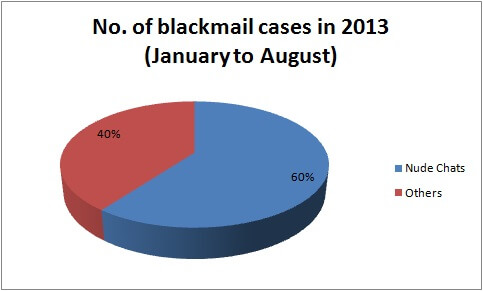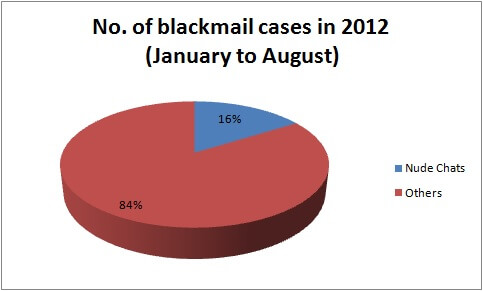"Sextortion" on the rise
- 2013-12-15
Nude chat before webcam is a trap
After engaging in several rounds of nude chat with a woman over the internet in June this year, a white-collar man in Hong Kong was later shocked to receive a message from her that she had recorded all of their webcam conversations.
The woman demanded HK$46,000 from him and threatened to release the footage unless he gave her the money.
Despite having paid the full sum of money to the woman, the male victim continued to receive blackmail from her, which led him to report the case to the police.
No arrest has yet been made.
From January to August this year, 248 such cases have been reported to the police, representing a seven-fold surge from the same period last year.
Academics and industry experts have pointed to the difficulty of bringing overseas-based offenders to justice and a lack of public awareness of internet privacy protection.
They say that many internet users wrongly consider it safe to disclose anything on the internet as long as they remain anonymous.
"Most victims didn't know they had been recorded until they were told about it and subsequently blackmailed," said Dr Lennon Chang Yao-chung, an assistant professor of criminology specializing in cyber crime studies at the City University of Hong Kong.
The phenomenon has been dubbed "sextortion", which the Federal Bureau of Investigation of the US defines as a type of extortion or blackmail in which the blackmailer threatens to release the nude images of the victim unless he or she agrees to a sex deal.
But most of the reported cases in Hong Kong involved the extortion of money rather than the coercion to perform sex acts, as is often the case in Western countries.
Reported losses by webcam blackmail victims had amounted to $160,000 this year by October, 12 times the amount for the same period last year, as reported by the South China Morning Post.
Despite the fact that blackmail is clearly stated as an offence under the theft ordinance, no blackmailer has yet been arrested as many culprits were found to be based outside of Hong Kong.
Prof Wanbil W. Lee, founder and president of the Computer Ethics Society, said that blackmailers tended to circumvent the law by using overseas servers, making it extremely difficult for the city's police to arrest them.
"Nevertheless, the government should at least make an effort to work with Interpol, and to collaborate with overseas law-enforcement agencies," said Dr Chang, referring to the world's largest international police organization with 190 member countries and regions, including the Hong Kong SAR.
Mr Au Yeung Ka-wo, project officer at the Society for Truth and Light, a charity group aimed at addressing social ethics, pointed out that webcam chat blackmail was not a new trend but had unfortunately not been treated as a social problem until now.
Dr Elizabeth Quat Pui-fan, a Legislative Councillor who is a member of the security panel, calls for more efforts on the part of the government to bust up cybercrimes.
"We must encourage the government to put more resources and manpower on cybercrime investigation, surveillance and, not to mention, education," she said.
Report by Karen Leung
Edited by Brian Yap
《The Young Reporter》
The Young Reporter (TYR) started as a newspaper in 1969. Today, it is published across multiple media platforms and updated constantly to bring the latest news and analyses to its readers.

Letter from the Editor : What Mr Noel Biderman has in store for the glitzy city?

Veteran pro-establishment politician defends Basic Law







Comments